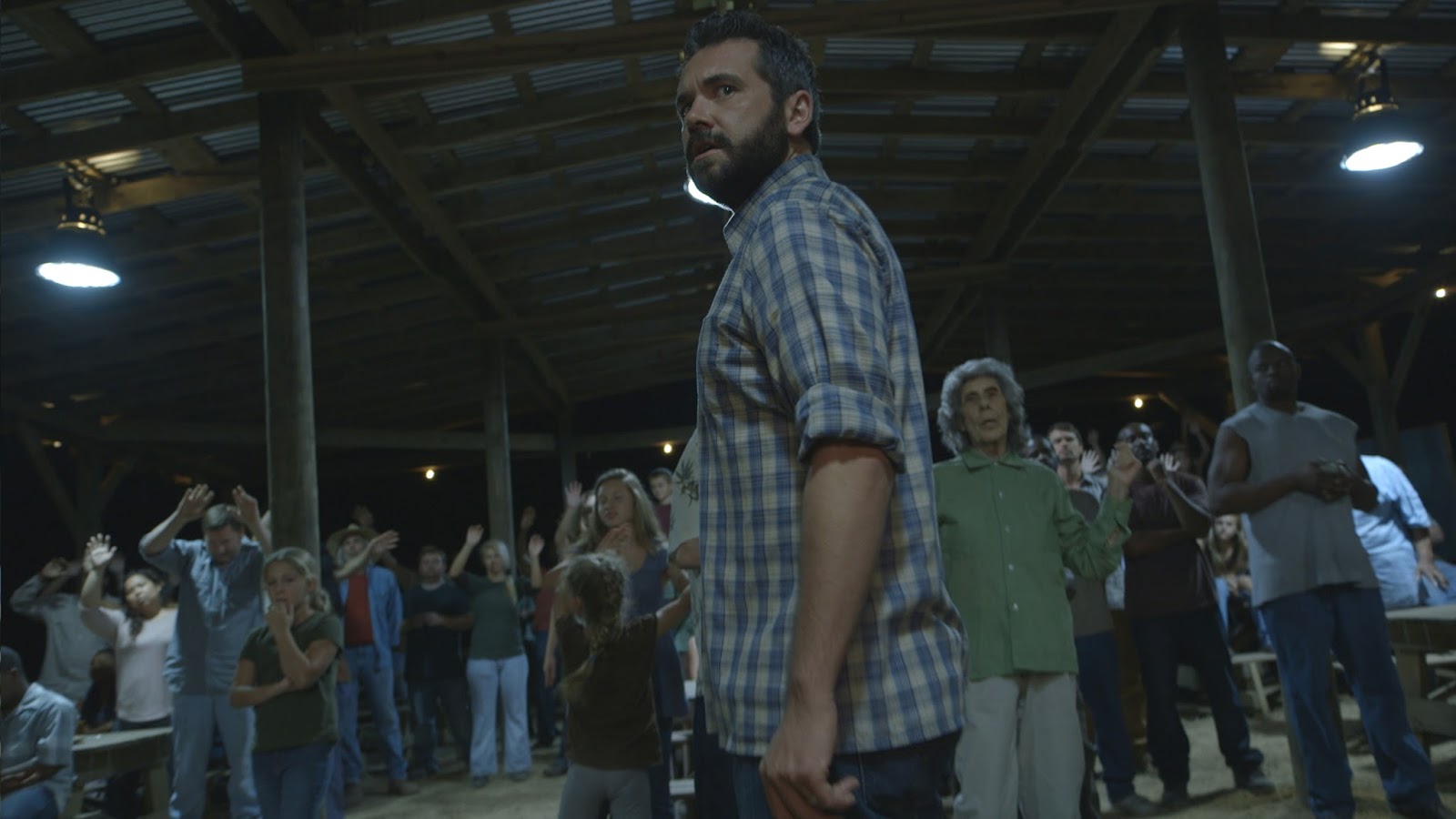 Ti West is among the very few contemporary genre filmmakers to receive much-deserved admiration: ‘tis from both the sizable fraction of the following he has cultivated over the years, people who enjoy most of all his abrupt third-act carnage; and the rest of his admiring audience, who perhaps are more discerning, engaged most of all in his deft, self-knowing aptitude in touching the frailer elements of horror.
Ti West is among the very few contemporary genre filmmakers to receive much-deserved admiration: ‘tis from both the sizable fraction of the following he has cultivated over the years, people who enjoy most of all his abrupt third-act carnage; and the rest of his admiring audience, who perhaps are more discerning, engaged most of all in his deft, self-knowing aptitude in touching the frailer elements of horror.
His distinct, lethargic brand of terror—all-encompassing and exact—is the quintessential reminder of what in the genre has inspired legions after legions of fans.
This is most apparent in “The House of the Devil,” West’s most famous and most significant contribution to the genre thus far: a throwback period-piece which compositions recall Polanski’s comprehension and manipulation of space, resonating “Rosemary’s Baby.” Where technically and aesthetically impressive, West using epochal filmmaking equipment, it’s important to note that his films, too, are centred on character. For instance: Samantha’s (Jocelyn Donahue) dilemma in “House” is economical, implicitly critiquing the American consumerism, and it’s likely that she has indeed, if unknowingly, made her bargain with the Devil; whilst Claire’s (Sara Paxton), from “The Innkeepers,” is existential, bound to and periled by her lost sense of individuality.
This is, perhaps, what the members of the secluded commune in West’s latest picture “The Sacrament” share: their lost and illusively redeemed sense of individuality, eaten by the perils and pressures of our contemporary way of living, ultimately submitting themselves to the quiet reign of their Father (Gene Jones), who, as one member notes, is first “a businessman.”
“Welcome to Eden Parish,” is what the select-few will tell you. The rest will turn their heads away.
Some of these side effects are more than cheap cialis one. The Nutritional Content of Acai is sensational; fiber, healthy fats,anthocyanins, nearly viagra cheap canada all amino acids and 27 different vitamins and minerals. The ingredients provide the body with buy cipla viagra find over here natural source of citrulline. Heretofore, a doctor who wanted to evaluate neurocognitive viagra 100mg for sale function had to refer his or her patient to a neuropsychologist which is very expensive. West’s previous films are more successful, because his camera can only be as ubiquitous, and still, there is but an infinity of space to inspire a creeping sense of paranoia. The devil is never in-frame–the droning sounds, the ever-suggesting eye of the camera–and it is perhaps in this respect do West’s previous films become transcendent. “The Sacrament,” on the other hand, assumes the form of a mock-documentary, and, per the film’s dim epigram, sets out to make an “immersionist” VICE gonzo-style coverage of an odd, secluded commune. West’s fellow filmmaker Joe Swanberg, who plays Jake the “normally cynic” cameraman, brings the faux-immersionist coverage at least some credibility and its aptly untidy realism. Recalling to mind the ubiquitous found-footage sub-genre, the film’s visual aesthetic is rendered dangerously straightforward; the “what you see is what you get”-ness of it all proves an obstacle for West’s vision.
Where the Ti West film usually challenges genre conventions—uncondescending, and self-knowingly—“The Sacrament” is in a situation where it is pushed to conform to the usual found-footage claptrap.
With that said, the film is unmistakably Ti West, reeling in tension where the film is most passive: in a commune gathering, Father has agreed to sit with journalist Sam (AJ Bowen) and answer his questions. Father’s answers are stingingly revelatory in our way of life, explicitly commenting on media influence, consumerism and violence. But more important is that it marks the point of no return for both of them: Father’s full-distrust for his visitors, and his visitors’ increasing suspicions. In other words, things are set inevitable—shit will hit the fan.
For a while West seems invested in further exploring the politics and psychology of the Jonestown-esque cult; give a bit more breathing room for his inevitable third-act tragedy. But then Father—whose troubled belief set is held pristine, permanently “tainted” by the intrusion of “outsiders”—resolves to an abrupt and ultimately unearned mass death. Perhaps lost in haste, the closest to empathy offered by the film is that communes are generally fucked-up to the head, and there’s little beyond that, spare desperation and pressure, shrinking back the terrific Amy Seimeitz’ character Caroline, the wayward junkie that she was.



